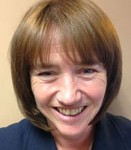 Congratulations to Dr Maryanne Freer (School of Medical Education), who has been awarded Higher Education Academy Senior Fellow Status. An HEA fellowship is an international recognition of a commitment to professionalism in teaching and learning in higher education. A Senior fellowship indicates an additional strong track record in management. Having gained a lectureship with the School in 1996, Maryanne became a Senior Academic Tutor before progressing to lead the MBBS, phase 1 , Patients, Doctors and Society Unit and being the course director for MBBS stage 4, Patient, Doctors and Society. In addition to her clinical academic work, Maryanne is a NHS senior manager and leads a national programme in post graduate GP medical education. Maryanne clinically practices as a psychiatrist.
Congratulations to Dr Maryanne Freer (School of Medical Education), who has been awarded Higher Education Academy Senior Fellow Status. An HEA fellowship is an international recognition of a commitment to professionalism in teaching and learning in higher education. A Senior fellowship indicates an additional strong track record in management. Having gained a lectureship with the School in 1996, Maryanne became a Senior Academic Tutor before progressing to lead the MBBS, phase 1 , Patients, Doctors and Society Unit and being the course director for MBBS stage 4, Patient, Doctors and Society. In addition to her clinical academic work, Maryanne is a NHS senior manager and leads a national programme in post graduate GP medical education. Maryanne clinically practices as a psychiatrist.
Category Archives: general
Our new FMS faculty liaison in LTDS
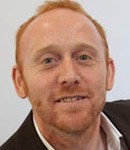 I am currently working in the Learning and Teaching Development Service as the main pedagogic lead for ePortfolio. I’m also involved with OLAF (online assessment and feedback) and have a keen interest in other e-Learning initiatives such as Open Badges and Learning Analytics. I will still be continuing with my main duties, but in addition I am now the new FMS faculty liaison for LTDS.
I am currently working in the Learning and Teaching Development Service as the main pedagogic lead for ePortfolio. I’m also involved with OLAF (online assessment and feedback) and have a keen interest in other e-Learning initiatives such as Open Badges and Learning Analytics. I will still be continuing with my main duties, but in addition I am now the new FMS faculty liaison for LTDS.
The liaison role is similar to the library liaison role and I will:
- Be a point of contact for quality enhancement and technology enhanced learning information, resources, queries and questions
- Help coordinate support requests for consultancy projects and other activity
- Identify opportunities to make links to existing technology enhanced learning activities
- Attend FLTSEC meetings, and appropriate SLTSEC meetings / away days
- Disseminate timely technology enhanced learning information to the Faculty and Schools
- Develop an understanding of the disciplinary perspectives and challenges to enable targeted information to be provided, and to feed into LTDS planning.
My email address is graeme.redshaw-boxwell@newcastle.ac.uk and I’m available on ext 83903. You can also find me on twitter – @graemeboxwell.
Graeme Redshaw-Boxwell, Learning and Teaching Development Service
Director Update: Winter 2015
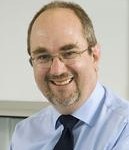 The FMS Education, Research, Development and Practice Unit has now been in existence for over a year and we continue to run a full programme of events. Attendance at our Journal Club continues to be strong and so far this year we have had stimulating presentations from Jo Matthan and Lindsay Ferrie. These meetings provide us with opportunities to look at papers on a wide range of teaching issues and discussions are always lively and thoughtful. If you have not been able so far to attend then please do come or if you want to present a paper on a learning and teaching topic that you have found interesting then your contribution will be warmly welcomed. Our learning and teaching seminar programme this semester has included talks from Concha Martinez from the Dental School in Madrid talking about dental education in Spain, Stephen Billett from Queensland talking about workplace learning and Hamish McLeod from Edinburgh talking about e-learning. The seminar programme continues in the New Year and the programme will be found elsewhere in this newsletter. Can I remind you that we are always seeking seminar speakers so if there is somebody that you would like to invite or if you wish to give a seminar yourself then, again, we would be pleased to hear from you. Finally, our first Faculty learning and teaching forum was held in December when we heard about a wide range of work-in-progress projects from across the Faculty reflecting our diverse interests in learning and teaching. This range of interests was also very much to be seen in the applications made to our small projects fund and I congratulate the successful applicants and wish them well in their projects. Finally, the next cycle of EQUATE is well under way with strong representation from FMS staff.
The FMS Education, Research, Development and Practice Unit has now been in existence for over a year and we continue to run a full programme of events. Attendance at our Journal Club continues to be strong and so far this year we have had stimulating presentations from Jo Matthan and Lindsay Ferrie. These meetings provide us with opportunities to look at papers on a wide range of teaching issues and discussions are always lively and thoughtful. If you have not been able so far to attend then please do come or if you want to present a paper on a learning and teaching topic that you have found interesting then your contribution will be warmly welcomed. Our learning and teaching seminar programme this semester has included talks from Concha Martinez from the Dental School in Madrid talking about dental education in Spain, Stephen Billett from Queensland talking about workplace learning and Hamish McLeod from Edinburgh talking about e-learning. The seminar programme continues in the New Year and the programme will be found elsewhere in this newsletter. Can I remind you that we are always seeking seminar speakers so if there is somebody that you would like to invite or if you wish to give a seminar yourself then, again, we would be pleased to hear from you. Finally, our first Faculty learning and teaching forum was held in December when we heard about a wide range of work-in-progress projects from across the Faculty reflecting our diverse interests in learning and teaching. This range of interests was also very much to be seen in the applications made to our small projects fund and I congratulate the successful applicants and wish them well in their projects. Finally, the next cycle of EQUATE is well under way with strong representation from FMS staff.
There are important outputs from this range of activity. The first, of course, is the enhancements of the teaching we deliver to our students while at the same time engaging in development of our own practice. It is also important, however, that we take opportunities to disseminate the results of our work. This includes, of course, our colleagues in the Faculty and University but we also need to disseminate the results more widely both to our specialised educational communities and where appropriate, to a more general education audience. This will include presentations at educational conferences whether of your relevant professional bodies or communities or more wide-ranging educational meetings but it also should include, where appropriate, publication in refereed journals. The FMS Unit will be running a series of events to help and encourage you to take the plunge and write up your work for submission to a relevant Journal. The seminar by David Reed on January 19th is going to focus on dissemination through publication. David is a Professorial Teaching Fellow in Southampton University and will be talking about his transition from being a basic scientist to developing educational projects and publishing the results. The Centre for Learning and Teaching (CfLAT) in Education, Communication and Language Sciences runs a very successful paper writing group. Members of the Centre are able to take papers in preparation to the group for supportive discussion and comment. They have offered us two slots in the New Year for us to take any papers we have in preparation to the group for discussion. Dates will be announced in the New Year but if anybody has a paper that they would like to take to this group please let me know now. I see this very much as a prelude to starting up our own paper writing group in FMS. EQUATE has a specific focus on writing up outputs from the projects of this group and has organised a writing retreat which will help us to build our collective skills in writing for education publications. Finally, in the New Year I will be placing on the Unit site a list of education journals that you might want to consider when thinking about publication or simply as a resource for reading.
I would also like draw your attention to the BERA Conference being held in September. The British Educational Research Association annual meeting is one of the top education conferences along with ECER, the conference of the European Educational Research Association. There is a Higher Education SIG within BERA and so given that and the fact that the meeting is in Leeds this year and so readily accessible could I encourage as many of you as possible to attend and, where appropriate present. Details of the BERA conference are to be found elsewhere in this newsletter.
In the meantime I would like to thank everybody whose has contributed to the work of the Unit this year whether as a presenter at one of our events, helping with organisation or simply through attending and contributing as a participant. I wish you all a restful and peaceful break over the Christmas holiday.
Prof Steve McHanwell, Director, FMS Unit for ERDP
Iain Keenan elected to the Anatomical Society Council
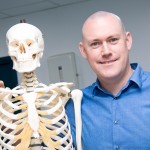 Dr Iain Keenan has just been elected onto the Anatomical Society Council for a term of 3 years. The results of a ballot of Society members were announced on Tuesday 15th December 2015 at the Society AGM that was held during the Anatomical Society Winter Meeting held at Cambridge University. He will take on his new role in addition to his current responsibilities as Anatomical Society Social Media Editor and as member of the Society Membership and Website Management committees. His work for the Society so far has included setting up, developing, editing and managing the Anatomical Society Twitter, Facebook and Instagram accounts, YouTube channel and LinkedIn group, assisting in the decision when recruiting a new website and membership service provider for the Society, judging the Society Best Image Prize and helping with organisation and reviewing of abstracts when the Society Winter Meeting was held here in the Medical School in 2013.
Dr Iain Keenan has just been elected onto the Anatomical Society Council for a term of 3 years. The results of a ballot of Society members were announced on Tuesday 15th December 2015 at the Society AGM that was held during the Anatomical Society Winter Meeting held at Cambridge University. He will take on his new role in addition to his current responsibilities as Anatomical Society Social Media Editor and as member of the Society Membership and Website Management committees. His work for the Society so far has included setting up, developing, editing and managing the Anatomical Society Twitter, Facebook and Instagram accounts, YouTube channel and LinkedIn group, assisting in the decision when recruiting a new website and membership service provider for the Society, judging the Society Best Image Prize and helping with organisation and reviewing of abstracts when the Society Winter Meeting was held here in the Medical School in 2013.
MBBS Curriculum Review: Building on Success
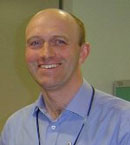 The MBBS course has been hugely successful for many years and is constantly reviewed and adjusted. However it is now some years (over 15!) since there was a major review of the whole structure and content of the programme. In that time much has changed, for example when the current curriculum was designed all of our graduates undertook two 6 month House Officer posts in Medicine and Surgery and the course was designed to give them “terminal velocity” to begin their careers. Now our graduates undertake a 2 year foundation programme and their first post might be in psychiatry or paediatrics. Of course we now also have a medical school in Malaysia which follows the same outcomes. Graduates there also undertake a two year period of House Officer Training with a similarly wide range of postings. Other external drivers to change include new national assessments in the final year such as the Prescribing safety Assessment and Situational Judgement Test and more are planned in particular the UK National Licencing Assessment.
The MBBS course has been hugely successful for many years and is constantly reviewed and adjusted. However it is now some years (over 15!) since there was a major review of the whole structure and content of the programme. In that time much has changed, for example when the current curriculum was designed all of our graduates undertook two 6 month House Officer posts in Medicine and Surgery and the course was designed to give them “terminal velocity” to begin their careers. Now our graduates undertake a 2 year foundation programme and their first post might be in psychiatry or paediatrics. Of course we now also have a medical school in Malaysia which follows the same outcomes. Graduates there also undertake a two year period of House Officer Training with a similarly wide range of postings. Other external drivers to change include new national assessments in the final year such as the Prescribing safety Assessment and Situational Judgement Test and more are planned in particular the UK National Licencing Assessment.
The most important driver to change however comes from within. The Board of Medical Studies has recognised for a number a years that there are issues relating to the structure of the programme that cannot be addressed without a major review. We wanted to wait until NUMed was firmly established before embarking on major changes and of course want and need input from Malaysia to make sure the course is appropriate there and in the UK.
The specific issues we wish to address in reviewing the curriculum are:
- Improving integration between the Phases of the MBBS course and between the institutions that deliver it (Newcastle, Durham and NUMed).
- To address the loss of momentum in relation to clinical skills that builds in Stage 3 but can drop off in Stage 4.
- To change the timing of finals and facilitate “assistantship” that is not overshadowed by high stakes summative assessments.
A curriculum review group has been established including representation from Durham University, NUMed and the 4 base-units, students and junior doctors as well as Health Education North East and lay representation. To date we have agreed, and The Board of Medical Studies has approved,some important principles that include:
- Retaining and strengthening our case based approach to teaching.
- No longer using the term “Phases” but having a single integrated programme.
- Firmly embedding assessment in our plans for change and specifically
- Completing written finals in year 4.
- Moving clinical finals to earlier in Year 5.
- Building in the potential for resitting within year.
- Changing the structure of Semester two in Year4 to include core clinical rotations.
- Strengthening and broadening assistantship in year 5.
- Increasing time spent in primary care.
The next phase is to review in detail the outcomes of the programme before implementation begins in 2017.
Dr Steve Jones, School of Medical Education
All change for the LTDS website!
An improved and revised LTDS website goes live on 16 December 2015 at www.ncl.ac.uk/ltds. This replaces the old Quilt website and reflects a focussing of direction for the service and more streamlined communication of what we do and how we can help staff in learning and teaching at Newcastle University. We hope that the changes we have made will make it easier to find the things you need related to learning and teaching development and teaching quality assurance at Newcastle University.
Alongside the revision of the website, we have launched a Learning and Teaching Development blog, https://blogs.ncl.ac.uk/ltdev covering:
- news in learning and teaching from around the University, including teaching quality assurance
- theme based collections of case studies of good practice from academic and support staff – available at http://teaching.ncl.ac.uk/casestudies/
- reports from learning and teaching related projects including Innovation Award holders
- changes and rapid updates to learning and teaching services supported by LTDS (Blackboard, ReCap, ePortfolio, etc)
- hints and tips, tricks and tools covering all aspects of LTDS areas of responsibility
This blog is linked to Twitter – follow us @ncllt – and both are linked back to the LTDS website.
Both the website and the blog will highlight areas drawn from a new collection of good practice, which is actively being managed and added to regularly. If you know of areas of interest or innovation in learning and teaching please let us know by emailing a new generic email address ltds@ncl.ac.uk.
These redesigned and new web based support services are intended to supplement and complement current areas of support provided from the Learning and Teaching Development Service.
We have worked closely with NUIT to put automatic redirects in place, so that, as far as possible, existing links to LTDS/QuILT content will still work. We have concentrated on links likely to appear in student handbooks and the most visited sections and pages of the old website.
We appreciate feedback on the changes we have made and look forward to receiving it via ltds@ncl.ac.uk – this will be monitored especially closely as the website changes are made and in the months immediately afterwards. This generic email address does not replace the individual email addresses of individual members of LTDS staff, but using it will ensure that if an individual is unavailable, someone else is able to pick up your query in a timely fashion.
Sue Gill, Learning and Teaching Development Service
Introducing the School of Biomedical Sciences
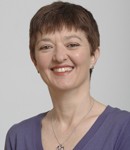 The School of Biomedical Sciences offers a range of 3 year BSc undergraduate bioscience degree programmes, with a focus on human health and disease. Currently these include Biomedical Sciences, BMS with Industrial Placement, Biochemistry, Biomedical Genetics, Physiological Science, Pharmacology, BMS with Microbiology and Exercise Biomedicine. We also offer 4 year MSci programmes in Biomedical Sciences, Biochemistry and Biomedical Genetics. We have just over 1000 students registered in the school, approximately 20% of whom are international students.
The School of Biomedical Sciences offers a range of 3 year BSc undergraduate bioscience degree programmes, with a focus on human health and disease. Currently these include Biomedical Sciences, BMS with Industrial Placement, Biochemistry, Biomedical Genetics, Physiological Science, Pharmacology, BMS with Microbiology and Exercise Biomedicine. We also offer 4 year MSci programmes in Biomedical Sciences, Biochemistry and Biomedical Genetics. We have just over 1000 students registered in the school, approximately 20% of whom are international students.
The BSc Biomedical Sciences programme is also delivered at the NuMed campus in Malaysia; this programme was established by Nick Morris and is now being led by Chris Baldwin. The NuMed students take Stage 1 and 2 at the Malaysia campus and then come to Newcastle for their final year. The first Stage 3 NuMed cohort arrived in Newcastle this semester and will graduate in 2016.
The School comprises 12 members of academic staff, 10 administrative staff and 5 technical staff. This teaching-focussed team manage the delivery of the undergraduate degree programmes and provide dedicated support to students throughout their studies. Teaching and personal tutoring for the programmes is delivered by academic staff from both the school and the research institutes. Research institute staff contribute significantly to our programmes delivering high quality research-led teaching, particularly in the honours years of the programme, and some are also involved as module leaders and members of the Board of Studies. The highlight of all our degree programmes is an individual 10 week full time research project; the majority of the students undertake their projects with a research team in one of the research institutes, although some undertake alternative projects, including an Experimental Design project, delivered by academic staff in the school, and Erasmus exchange projects in Europe, co-ordinated by Carys Watts.
School staff are actively involved in Educational Research projects, some of which have been developed through participation in the CASAP and EquATE programmes. For example:
- Damian Parry, in collaboration with Dr Helen Hooper (Northumbria University), has been investigating students’ perception of scientists and has also recently begun a study of student perceptions of feedback, with the assistance of a Newcastle Work Experience student intern.
- Geoff Bosson has introduced a practical skills test taken by all Stage 1 students and is investigating the extent to which engagement with the test develops student confidence and the role of emotional learning in this process.
- Lindsey Ferrie has established a network of student Employability Ambassadors, who help to prepare fellow students for graduate employment. She has also developed a “Feedback Foghorn” delivered via e-portfolio and is investigating whether this mechanism encourages students to reflect on and engage with their feedback.
- Carys Watts is developing training sessions to help students to communicate complex scientific information, generated during summer vacation research projects, to an audience of non-scientists and is exploring how students understand the concept of the “layperson” in this context.
- Debbie Bevitt and Nick Morris are working with two student interns, Bronte Elliott and Kate Johnson, and Dr Sue Thorpe (School of Psychology), to evaluate student use of social media during study, the extent to which they perceive this to be a distraction and how students self-manage their online activities to avoid distraction. This project is funded by a ULTSEC Innovation fund grant.
Dr Debbie Bevitt, Head of School of Biomedical Sciences
Director’s update Autumn 2015
 Welcome to our first newsletter of the new academic year. I hope that you have all had a summer both productive and restful in equal measure in preparation for the new academic year.
Welcome to our first newsletter of the new academic year. I hope that you have all had a summer both productive and restful in equal measure in preparation for the new academic year.
In this newsletter, as a step towards helping us all understand what educational activities colleagues are engaged in across the four Teaching Schools, Gwyneth Doherty-Sneddon, Head of School has outlined what is happening in the School of Psychology and we’ve included updates from current projects in SME and BMS. If you have a project in progress that you would like to tell us about we would be very pleased to hear from you.
Our events programme is also getting underway with both the Journal Club and the L&T seminar programme starting once more. We have been very pleased to see the consistently strong attendance at the Journal Club last year and the vigorous discussions about learning and teaching that the presenters and the papers have stimulated. Our first seminar this year was in September when we had a very interesting talk from Concha Martinez from the Dental School in Complutense University, Madrid discussing the development of dental education in Spain. Our next seminar from Lois Neal is on a topic many of you have asked to hear more about which is ethical approval for education projects. I am sure this will stimulate a high level of interest. As previously advertised our seminars later in the term are to be given by Stephen Billett and Hamish Macleod. In Semester 2 we have Pauline Kneale (PVCT Plymouth), David Read (Southampton) and Dave Lewis (Leeds) already lined up but there are still spaces for further speakers so if you have ideas for speakers please let us know. Also this year sees a new round of the EQUATE programme starting at Faculty level with a strong representation from Faculty of Medical Sciences staff. We will have more to say about EQUATE in later editions of the newsletter.
Meanwhile, a second call is out for applications for ERDP development grants. Our successful applications from the first round can be seen in this newsletter and we look forward to receiving more applications from you.
There are many education research resources available on the internet and we would not aspire to provide a comprehensive or even a recommended listing of what is out there. What we can do is to provide a platform for us to share those resources with each other that we have found helpful or useful.
In that spirit I would like to draw your attention to two new resources for medical education research that Jane Stewart is recommending as being particularly good.
- Researching Medical Education (Cleland, J and Durning SJ eds) is a recently published textbook presented by ASME and AMEE.
- NIHR have produced a brief description of some funding sources available from them which they have illustrated with three case studies including one from Newcastle, Ellen Tullo.
Again I hope you enjoy our newsletter and find it both informative and useful. If you would like to write something for us there is no need to wait to be asked, please just send it in. If there is something that you would like us to include that we are not covering already then tell us.
Professor Stephen McHanwell, Director ERDP
Psychology introductions
 The School of Psychology is a teaching school dedicated to teaching Psychology and developing professional practice in Psychology. Our main aim is to provide excellent and internationally-leading education in undergraduate and postgraduate psychology. Psychology at Newcastle focusses on the scientific and experimental study of mind and behaviour. We have strong professional psychology pathways in Clinical Psychology and Forensic Psychology and very distinct biological, evolutionary and neuroscience components in our undergraduate programmes.
The School of Psychology is a teaching school dedicated to teaching Psychology and developing professional practice in Psychology. Our main aim is to provide excellent and internationally-leading education in undergraduate and postgraduate psychology. Psychology at Newcastle focusses on the scientific and experimental study of mind and behaviour. We have strong professional psychology pathways in Clinical Psychology and Forensic Psychology and very distinct biological, evolutionary and neuroscience components in our undergraduate programmes.
Our School encourages students to draw from and contribute to the evidence-base, and for the applied fields of psychology (such as clinical and forensic psychology) we teach students theory and practice throughout their training. We take great pride in the quality of our teaching and are fully engaged in educational development and research. We have a special interest Pedagogical Research Group (key contacts Patrick Rosenkrantz, Helen St Clair-Thompson, and Amy Fielden) who are currently working on projects investigating: student and staff attitudes to and responses to feedback; increasing student reading activity. The latter project will explore students’ reading habits over the course of a semester, and then trial a series of structured reading groups that use a flipped classroom approach. The impact of the reading groups on students’ wider reading habits will then be examined. Our student satisfaction is at an all-time high (97%) making us the top Russell-group Psychology School in the country. This is due to our unique approach to our programmes that are delivered by our teaching focused school as well as research institutes. Students benefit by working at the cutting-edge of the discipline while also having their learning nurtured by a dedicated teaching team. Furthermore, our students actively engage in peer-assisted learning: Psychology has a long established peer-mentoring scheme in which final year students support the transition of new students into the psychology degree and university life.
We have 2 single honours accredited undergraduate programmes: BSc in Psychology (key contact Patrick Rosenkrantz) and a BSc in Psychology with Professional Placement (4-year degree, key contact Helen St Clair-Thompson. We also contribute to 3 (soon to be accredited) joint degrees from other Schools: Biology and Psychology; Mathematics and Psychology; Nutrition and Psychology.
At post graduate level we have the following programmes:
- MSc Psychology (Foundations in Clinical and health): key contact Sue Thorpe
- MSc Psychology (Foundations in Clinical and Forensics): key contact Sue Thorpe
- MSc Forensic Psychology: key contact Gavin Oxburgh
- IAPT Certificate Low intensity Psychological Therapies: key contact Mark Papworth
- PGCert/PGDip in CBT: key contact Stephen Barton
- Praxis CPD modules (e-learning): key contact Lawrence Conway
- Doctorate in Clinical Psychology: key contact Rob Dudley
Part of our strategy is to increase our international footprint. We are currently seeking to develop partnerships and recruitment in China, India and Malaysia: Key contacts Gavin Oxburgh, Patrick Rosenkrantz and Vicki Bruce.
We are affiliated with a number of research institutes around the University: we have strong ties to the Institute of Neuroscience and the Institute of Health and Society with many of our teaching staff conducting their research within these institutes. Other psychological research within the School of Education, Communication and Language Sciences includes educational psychology. An exciting interdisciplinary environment for research linking computer science, creative arts and others including psychologists is found in Culture Lab. There are several projects in Human-Communication Interaction there, led by Professor Patrick Olivier. Newcastle University Business School (NUBS) also has a range of multidisciplinary research centres and projects which include psychological perspectives on such areas as consumer behaviour and organisational behaviour. We also collaborate extensively with the International Investigative Interviewing Research Group (iIIRG) which is an international network of professionals committed to improving investigative interviewing of victims, witnesses and suspected offenders worldwide.
Professor Gwyneth Doherty-Sneddon, Head of School, Psychology
ADEE special interest Group
ADEE special interest group
Dr James Field, School of Dental Sciences,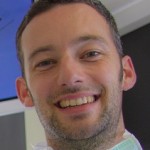 has been appointed chair of a new ADEE pan-European special interest group in clinical skills teaching that will run over 3 years. The aims for the first meeting are:
has been appointed chair of a new ADEE pan-European special interest group in clinical skills teaching that will run over 3 years. The aims for the first meeting are:
- Create an international forum for developing innovative clinical skills teaching methods
- Give consideration to supportive materials for clinical skills teaching
- Compare and share good clinical skills teaching practice across Europe

